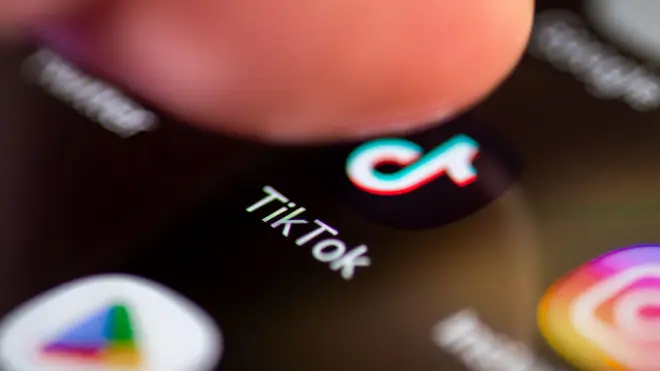
Ali Miraj 12pm - 3pm
3 November 2023, 10:54

Analysis of four different so-called challenge videos on the social media platform saw sexist comments attract 60% more likes.
Sexist comments on TikTok videos are more popular than non-sexist ones, and men are more likely to make them than women, analysis has suggested.
On average, sexist comments received 604 likes compared with 375 for those not considered sexist, according to research presented to the British Psychological Society’s Cyberpsychology Section Conference.
The analysis on four different so-called challenge videos on the social media platform saw sexist comments rack up on average 60% more likes than non-sexist comments.
Dr Genavee Brown, who led the study, said women users’ videos attracted more sexist comments than men’s and warned of the potential psychological impact such comments could have.
While men were more likely to post sexist comments, both genders made the same kind of sexist comments, her analysis suggested.
Researchers sampled 400 videos from four different challenge hashtags – #cakechallenge, #bottleflip, #thorshammer and #chairchallenge – and analysed the number of likes, shares, views and comments on each.
In total across the four challenges, 7,688 comments were analysed, with just over 13% found to be sexist.
The cake challenge, which focuses on the size of a person’s bottom by seeing if a weight-lifting bar will roll over them as they lie on their front, attracted the most sexist comments, at 28%.
Dr Brown, assistant professor of psychology at the University of Northumbria, said: “The goal of the cake challenge is to not let the bar cross your bottom. This is because big bums are in – thanks in part to Kim Kardashian – so you want your bum to be big enough to stop the bar.”
She said the Thor challenge – which saw users lifting a barbell upright – appeared to be centred around a masculine ideal of physical strength, and attracted objectifying comments towards men, adding: “So it seems that both women and men are harmed by these unrealistic, gendered ideals.”
Some of the comments on the cake challenge included “Ladies, ladies, it’s about shape, how big is just extra” and “Boys do it better”.
Dr Brown added: “We were surprised to find that sexist comments were more liked than non-sexist comments. We thought that users might condemn sexism by not liking sexist comments, but we actually found the opposite.
“It appears that TikTok is not immune to the rampant sexism online.
“The most common form of sexism was discredit, whereby women’s achievements were coming under fire, often because of their gender.
“If every time you talk about something you have accomplished and say something positive, it is attacked, then that can have a psychological impact and make you feel like you are not deserving of success.”
TikTok said the report is based on a small sample of videos so it is not fully representative of interactions on the platform.
Its community guidelines make clear that hateful behaviour is not tolerated on the platform and its policies specifically name misogyny as a hateful ideology, it added.